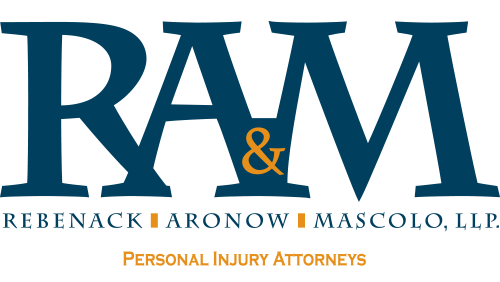Why Novel Coronavirus Risks Seem to Be Higher in Truckers
Trucks have been an integral part of the United States’ economy for several generations. Without them, our supermarkets’ shelves wouldn’t be filled with affordable products and health care providers wouldn’t have medical supplies to treat the roughly 3.5 million cases of COVID-19 that have been recorded in the U.S.; in other words, we don’t even want to think about what life without truckers would entail. Despite their necessity, truckers are facing issues like the potential of legal liability thanks to how the novel coronavirus pandemic is being handled and the truckers COVID-19 risk.
Owner-Operators Face Greater Health Risks Due to Their Independent Status
Independent truck drivers, also known as owner-operators, are subject to benefits that company drivers don’t have. Some of these benefits include:
- The potential for making more money because expenses like compensatory health insurance and risk aren’t calculated into wages.
- Owner-operators create their schedules and can exercise discretion over what companies they’re willing to work with.
- Independent drivers also aren’t required to drive in teams or work beside other drivers who live in the same cabin and drive the same vehicle.
- The American long-haul trucking industry is currently experiencing a shortage of drivers. Many industry analysts agree that this discrepancy will continue to rise in the coming years. Therefore, owner-operators are better able to command higher pay for their services, due in large part to this shortage.
The United States has long been home to some of the world’s highest pharmaceutical and health care costs. In fact, millions of Americans have no health insurance coverage, leaving them stuck to foot the bill of any medical help they might solicit.

Truckers, thanks in large part to the lack of exercise they get from sitting behind the wheel as an inherent part of their job, are more likely to have pre-existing conditions like obesity and diabetes. On top of that, truck drivers are less likely to have health insurance coverage than the average American. Let’s not forget the impact of having widespread, convenient access to nutrient-poor foods, such as those sold at gas stations and truck stops.
Medical professionals have long noted that people with pre-existing health issues are more likely to experience worse, if not fatal, outcomes from COVID-19.
A survey of American truck drivers conducted by a coalition of national labor unions found that roughly 70% of truckers disclosed worse working conditions and lower pay. One reason for this is a reduction in imports from China, among other places, which incentivizes transportation companies to commission fewer longer-haul trips such as cross-country ventures. A reduction in other port traffic and factories shutting down has likely caused lower pay, too.
Earning less money than they were despite the fact they quite literally support the world’s most powerful economy, American long-haul truck drivers are disproportionately likely to not just contract COVID-19, but also be unable to afford medical care to treat the unrelenting disease.
Truckers widely agree that a truck driver coronavirus stimulus payment from the federal government would ease tensions and help truckers who think they’ve contracted COVID-19 by helping them afford a prompt antibody test. However, the trucking community generally doesn’t foresee an eventual coronavirus stimulus payment for truckers being sent out.
How Stopping for Rest Breaks and Food Now May Cut Into Truckers’ 14-hour Duty Periods More Than Ever Before
Here in the United States, truck drivers are subject to week-long work periods. They can’t drive more than seven days in a row. Given a busy schedule, which truckers often have, they can drive on day number nine following seven days of driving; although, they’re required to take a 34-hour period of rest to refresh their legal ability to spend another seven days on the road. These requirements are designed to limit the risks of fatigued driving.
Here’s an example: After a weekend off, a long-haul truck driver named Joseph gets back behind the wheel of a big rig on Monday at 8 a.m. He must take that 34-hour break the following Monday starting no later than 8 a.m.
These rules, designed to keep long-haul truck drivers and their civilian counterparts safe, are instituted by the U.S. Department of Transportation’s Federal Motor Carrier Safety Administration. For each day spent on the road, truckers can drive for 11 hours. We can call this a driving limit. These 11 hours must be spent across a 14-hour duty period.
For example, after Joseph started driving on Monday at 8 a.m., he can drive for 11 hours, though not after 10 p.m.
The last long-haul truck driving regulation we need to look at is the rest break provision. After eight hours of uninterrupted driving, drivers must break for at least 30 minutes.
You might be asking yourself, how do these regulations have anything to do with COVID-19? Long-haul truck drivers now have fewer convenient opportunities to pick up food or take bathroom breaks. Now that they’re having to go out of their way to do things as simple as buying fast food, this time may cut into their 14-hour duty periods, limiting their opportunity to earn an honest living.
With less pay, truckers who contract COVID-19 will inevitably not have as much discretionary income to cover the cost of medical treatment.
It’s great that some trucking companies and other entities in the industry are providing drivers with free amenities like boxed lunches and other more-convenient meals to reduce their truckers COVID-19 risk. These measures also prevent them from wasting time on jumping through hoops just to buy food. However, not all truckers — especially independent operators — are being given these benefits.
Families of Truckers May Be at Higher Risk of Transmission Thanks to Layoffs and Lower Work Availability
Of course, some truckers have been laid off. Even more have faced a lighter workload, encouraging them to go back home. After all, self-quarantine is one of the major recommendations that the U.S. public health system has shared with Americans.
This has encouraged many truckers to go back home, many of which are shared with their children, spouses, and other family members.
Considering that truckers are less likely to have insurance, more likely to be averse to health care visits due to high costs, and more likely to frequent high-traffic indoor areas like gas stations that may expose them to novel coronavirus transmission, the truckers COVID-19 risk is high. Furthermore, truckers’ live-in family members and roommates may be more likely to catch coronavirus than families of people in other lines of work. It should be noted that research is generally shoddy regarding long-haul truck drivers, their health, and the COVID-19 pandemic’s impact on their physical well-being.
Is Quarantine a Reasonable Possibility for Truckers COVID-19 Risk?
Many truckers get one-way loads, meaning they get paid to transport goods from their starting point — usually somewhere near their area of residence — but not the other way around. This means accepting jobs without return trips that could make the trip worthwhile.
One anonymous driver recently reported that his company urged him to self-quarantine after learning he might have contracted COVID-19. Instead of arranging the driver to pick up a nearby load and return it somewhere near his home so he could quarantine there, he had to stay in his vehicle. To add insult to potential injury, he wasn’t even offered any trucker COVID hazard pay.
Even if companies do work with drivers to promptly return home to self-quarantine, they largely still don’t have anywhere to quarantine outside of their trucks. This improves their likelihood of catching the brutal respiratory disease.
When Trucking Accidents Occur
With countless issues compounding the potential of long-haul drivers contracting COVID-19 and driving while sick, trucking accidents may be more likely until the pandemic ends. A crash victim might benefit from contacting a trucking accident lawyer here at RAM Law. Serving the entirety of the Garden State, we’ve got offices in Freehold, Somerville, and New Brunswick. Call us at (732) 394-1549 to speak with a trucking accident lawyer.


